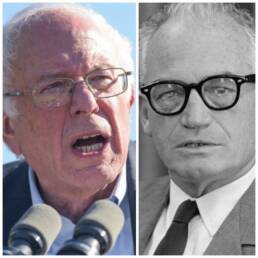Election 2016
Democrats Want to Get Rid of the Electoral College. It is Not Going to Happen (and Maybe that’s Best).
By Michael A. Smith, Emporia State University With the 2020 campaign season having already begun (ugh), Democrats are revving up to do away with the Electoral College. For them, the case is a strong one. In the entire history of the United States, only five Presidential elections have seen the…
You can trust the polls in 2018, if you read them carefully
By Josh Pasek, University of Michigan and Michael Traugott, University of Michigan A Michigan township collects votes in 2016.Barbara Kalbfleisch/shutterstock On the morning of Nov. 8, 2016, many Americans went to bed confident that Hillary Clinton would be elected the nation’s first female…
MPSA's Top 10 Blog Posts from 2017
There is no doubt that 2017 was a memorable year in political science. As the year comes to a close, it’s time to take a look back at our the most-read blog posts from the past twelve months. #10 Alone and Working: Making the Transition to ABD Harold Young and Adnan Rasool share lessons from…
Politics and Sunburn: Snapshot of the U.S. from Belize
By Harold Young, Ph.D. The sun blazed, cooled only by sporadic showers, during my recent visit to the Central American and Caribbean nation of Belize where I spent my formative years. The size of Massachusetts, Belize is racially and ethnically diverse population of 332,000 that depends heavily on…
Polling for the 2016 Presidential Election: What Went Wrong?
As I write, Donald Trump is less than two weeks from being inaugurated as President of the United States. For political scientists, our “what the…?” moment involves the failure of most public-opinion polls to predict the results of the 2016 election. I joined numerous colleagues in assuming a…
Election 2016 Lesson for the Media: New Journalistic Norms Needed to Cover Elections
The 2016 U.S. presidential election will stand out in the nation’s collective memory as a highly unusual event for many reasons. It featured two unique candidates, an election campaign that completely overturned the norms set by previous elections, a neglected voter base that showed an…
Recommended Reading: Themes from Election 2016
In the week since the election of Donald Trump, many citizens and political scientists are trying to understand both the underlying causes of the win while thinking about the implications for the citizenry and policy going forward. Here, we do not offer a full accounting of the election, but…
Political Science: The Cure for Election Anxiety
Reporters are discovering a new phenomenon this year: election anxiety. This year’s contests, particularly the one for President, have Americans worried and minds racing. The cure is right here: political science. It is the key to calming mental chatter, reducing stress, re-centering energy, and…
Bias and Women’s Under-Representation in Politics
Even if Hillary Clinton shatters the “highest” glass ceiling this November, for many years to come women are likely to remain under-represented in elected offices in the United States and throughout most of the world’s democracies. If bias on the part of party leaders or voters explains some of…
Bernie Goldwater: What Sanders Supporters Can Learn from Young Americans for Freedom
Supporters were crestfallen, but their resolve was firm. Their candidate had refused to buckle to the pressure from party elite—the usual pressure from political managers, to move to the political center and tone down strong rhetoric, seeking to enlist the support of middle-of-the-road voters and…

